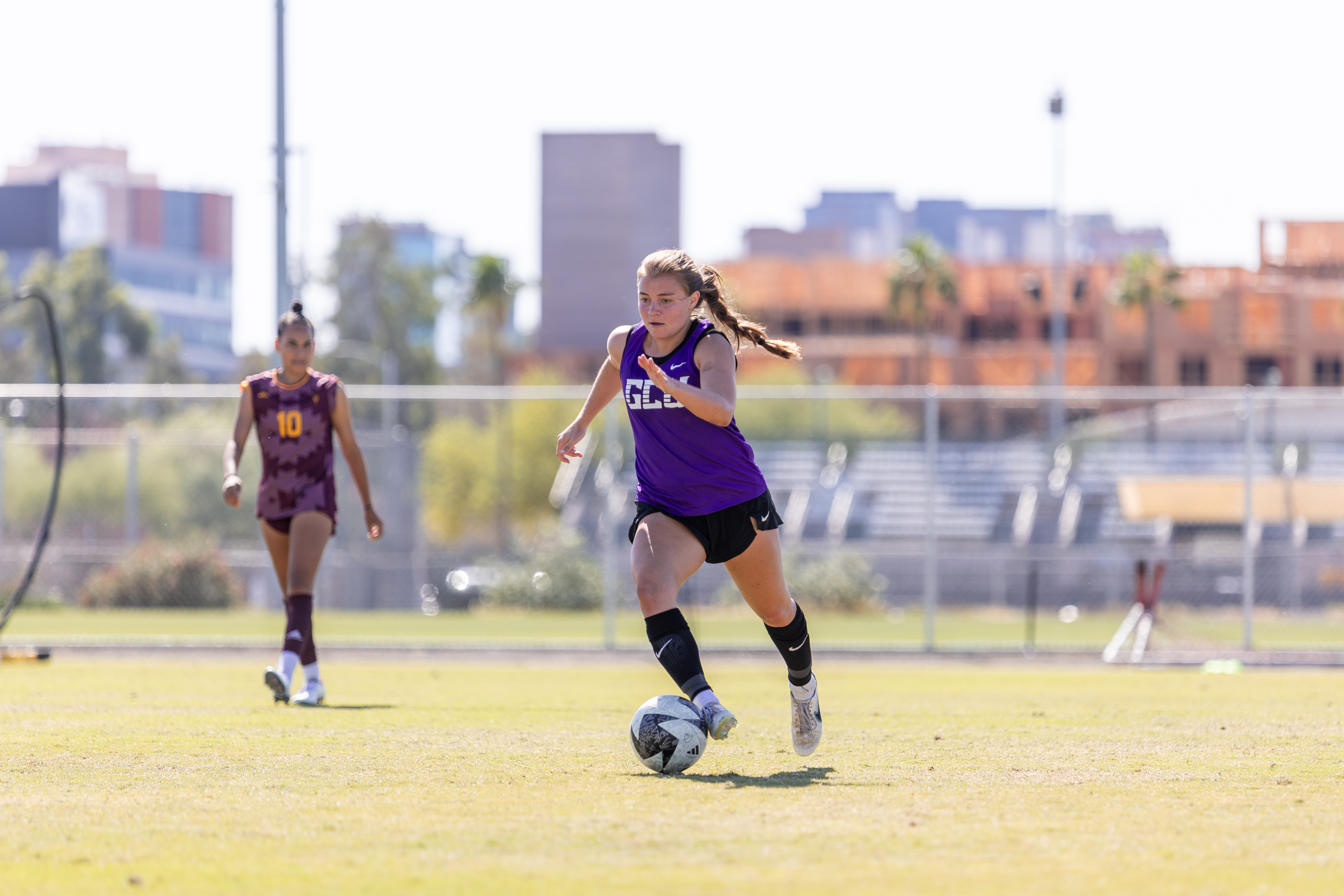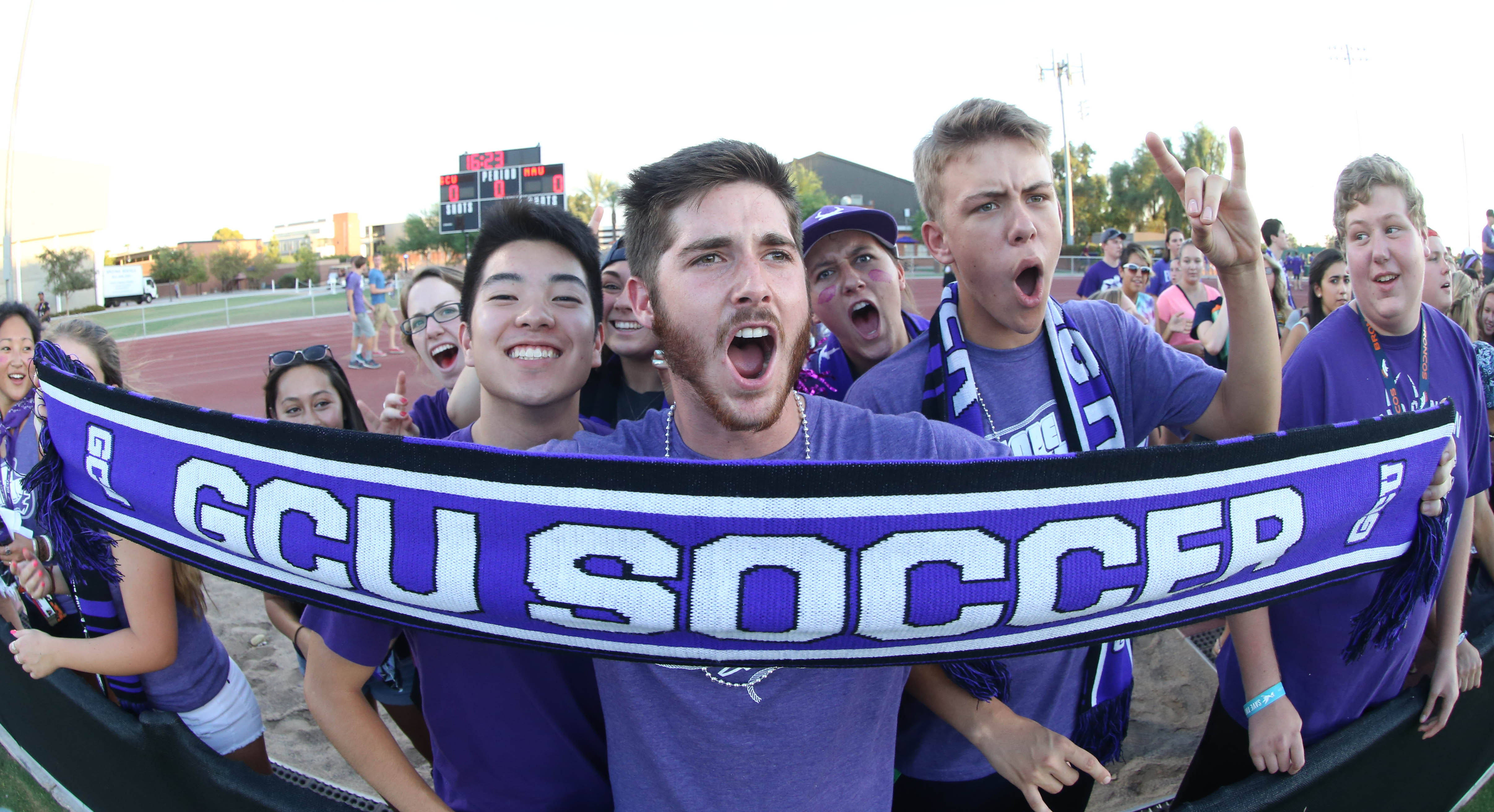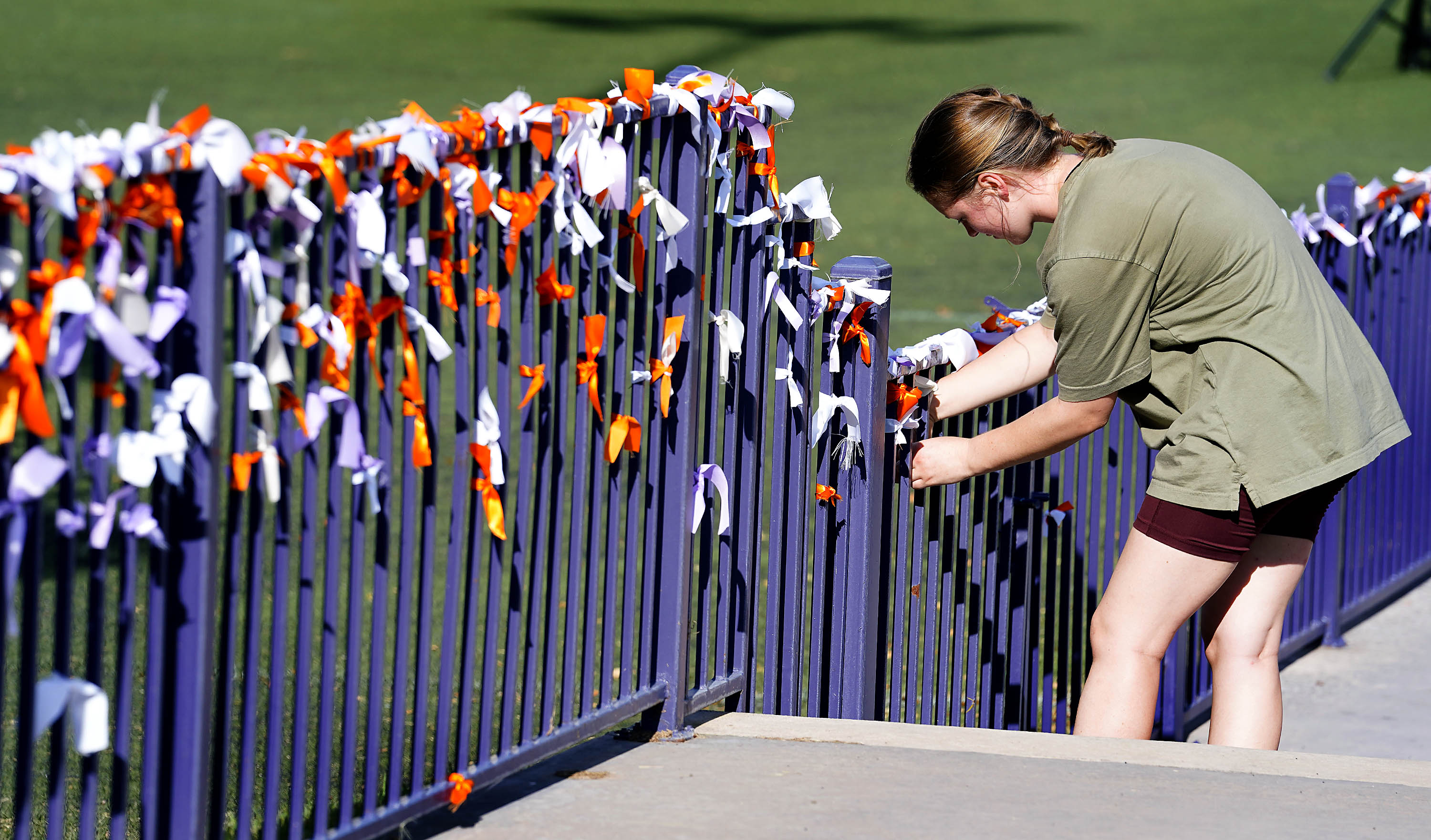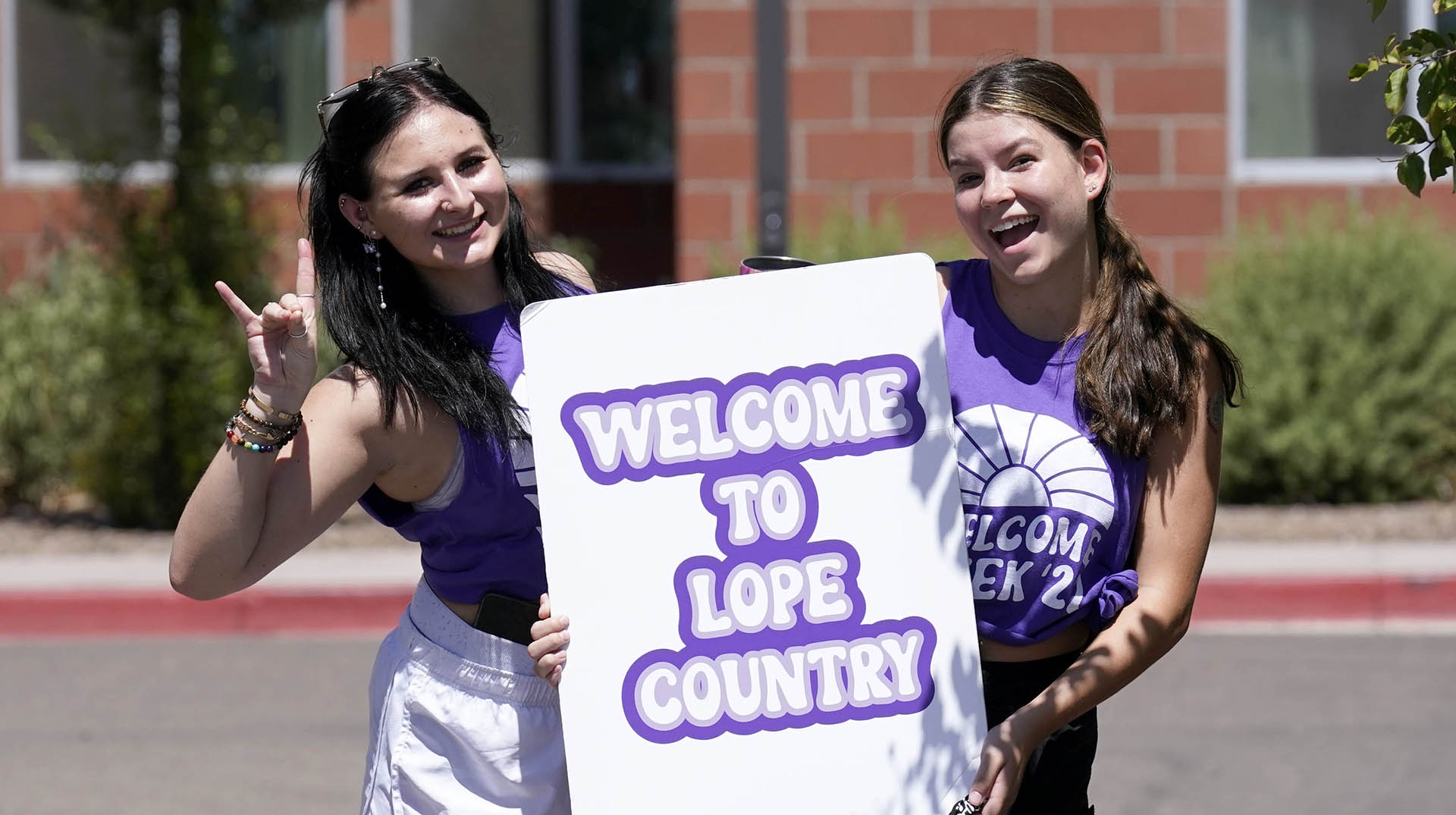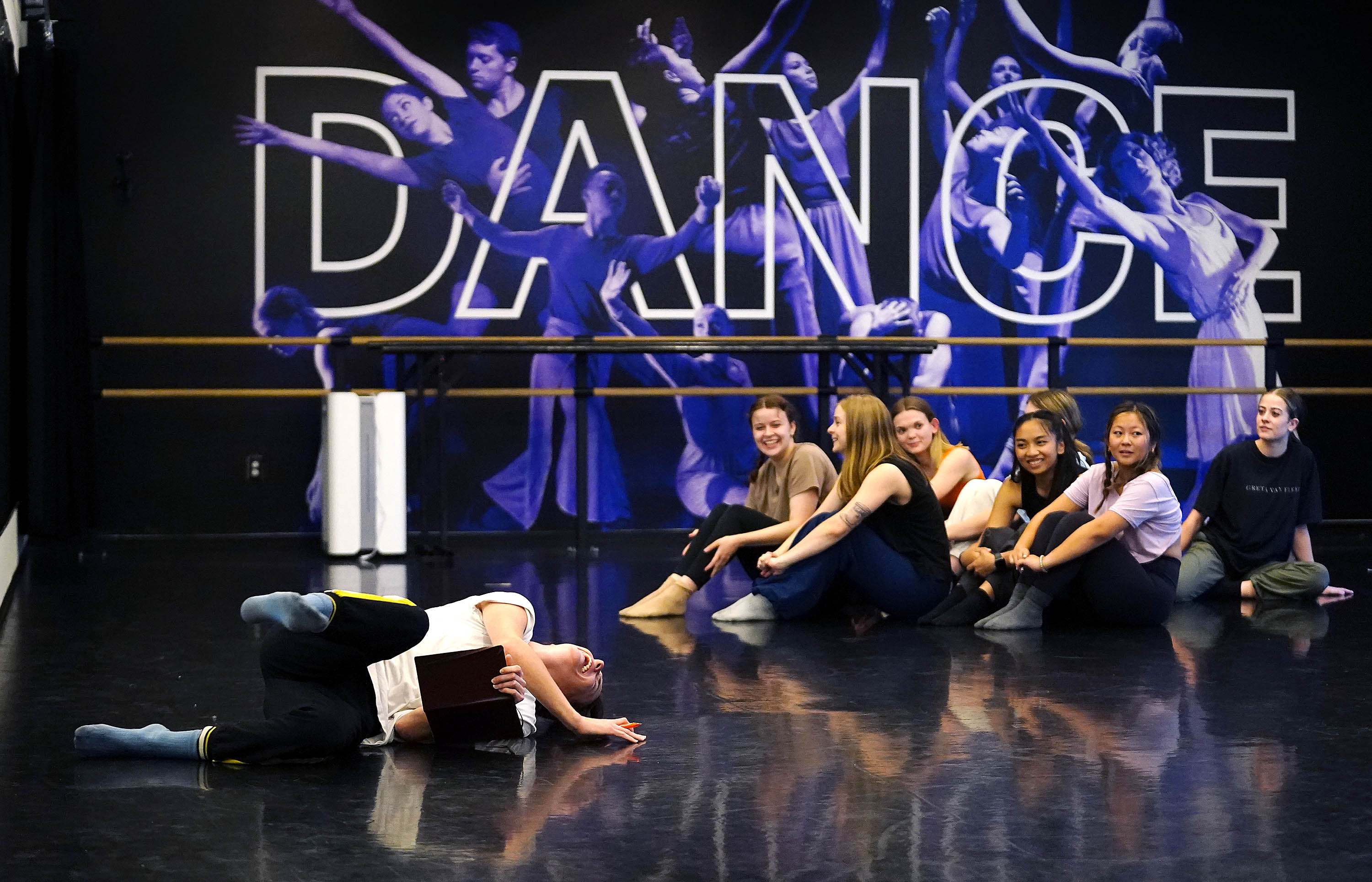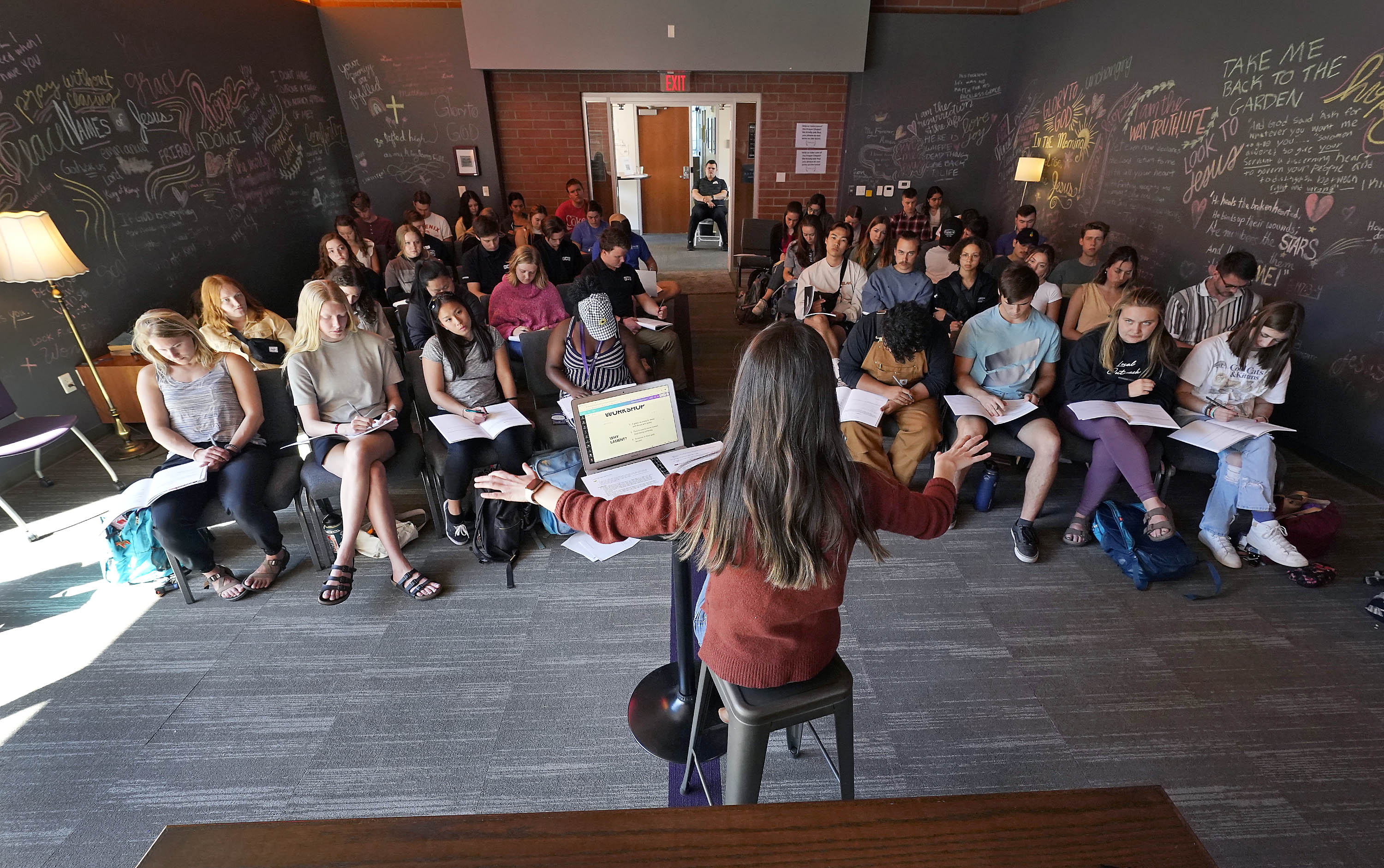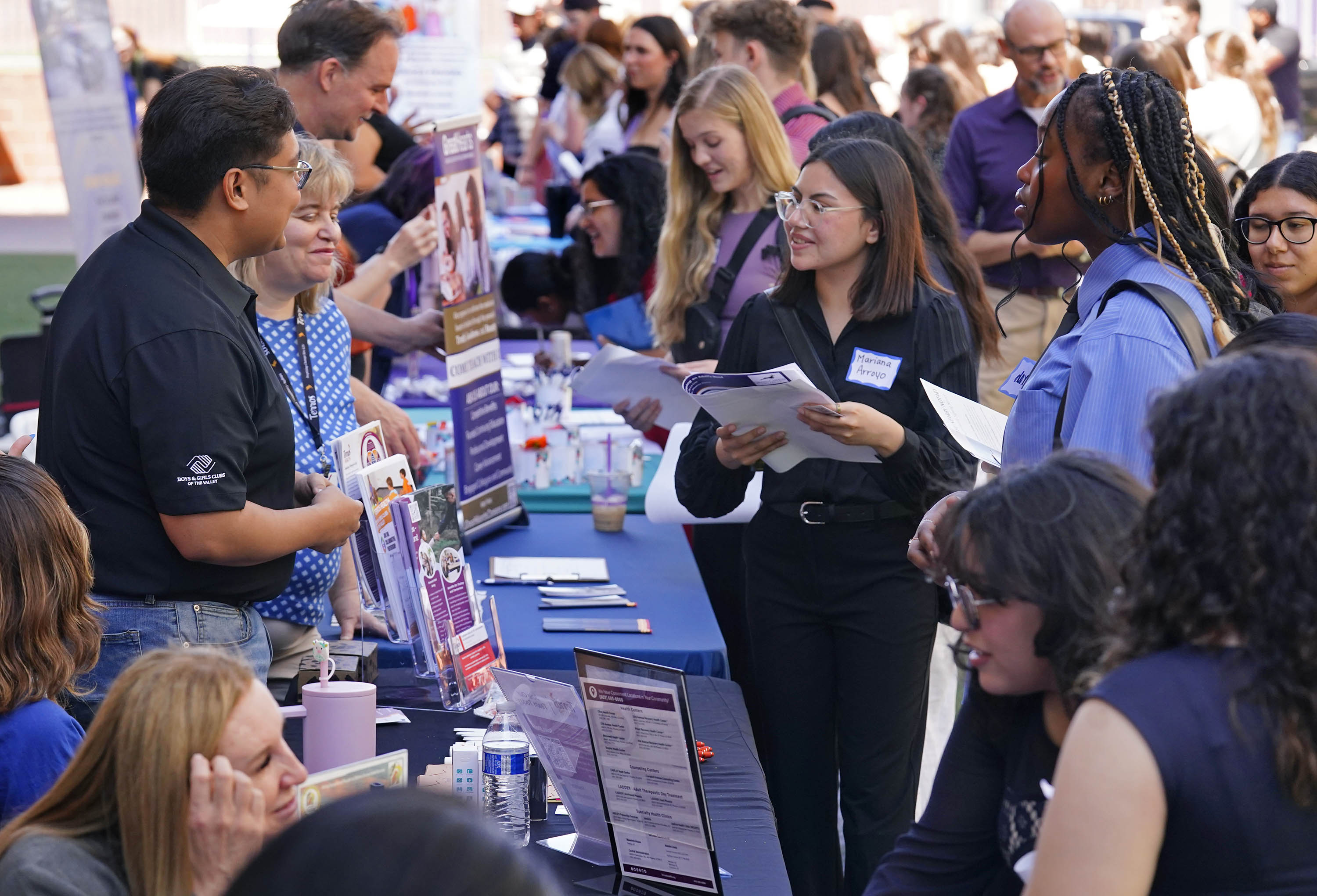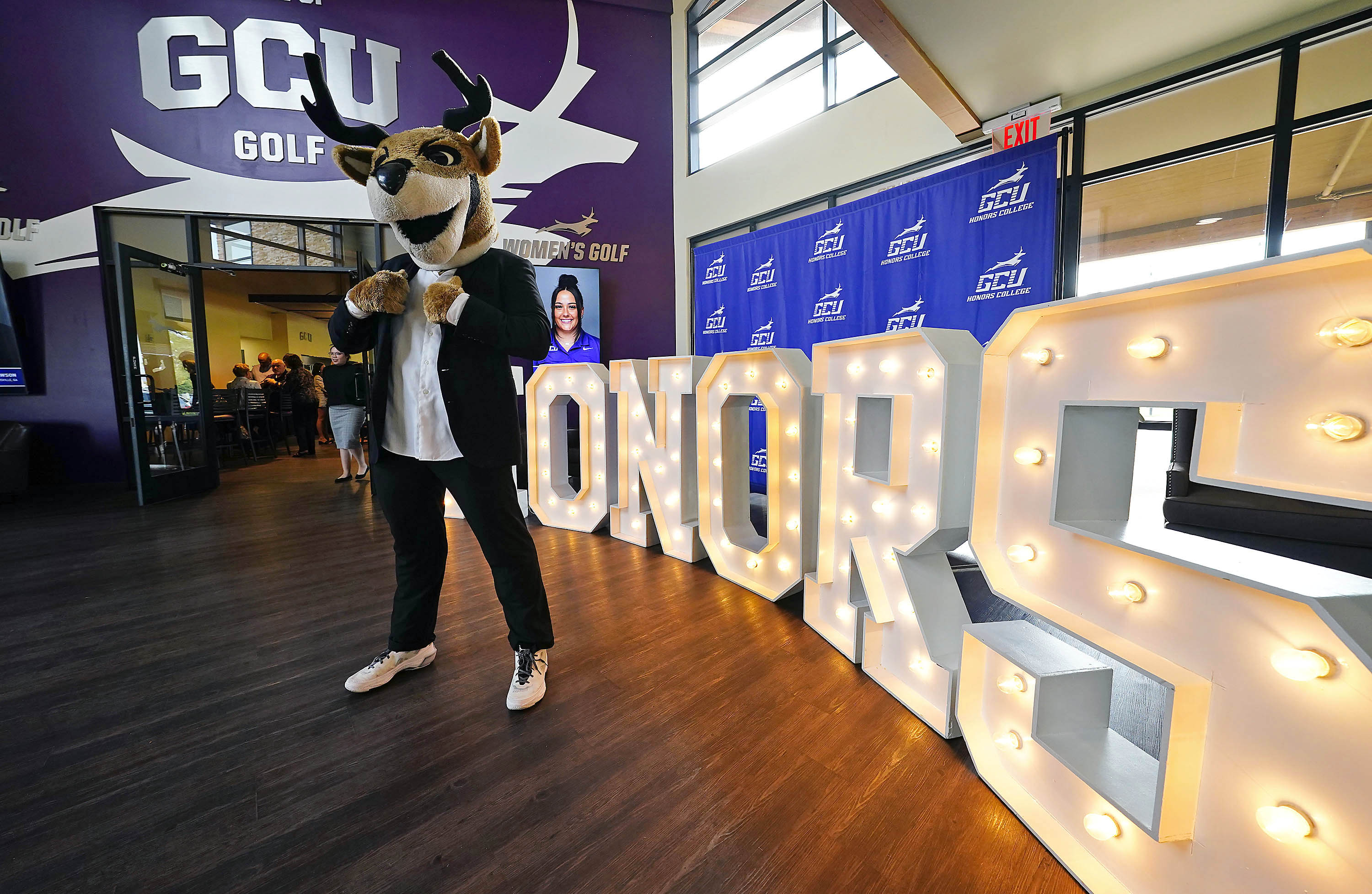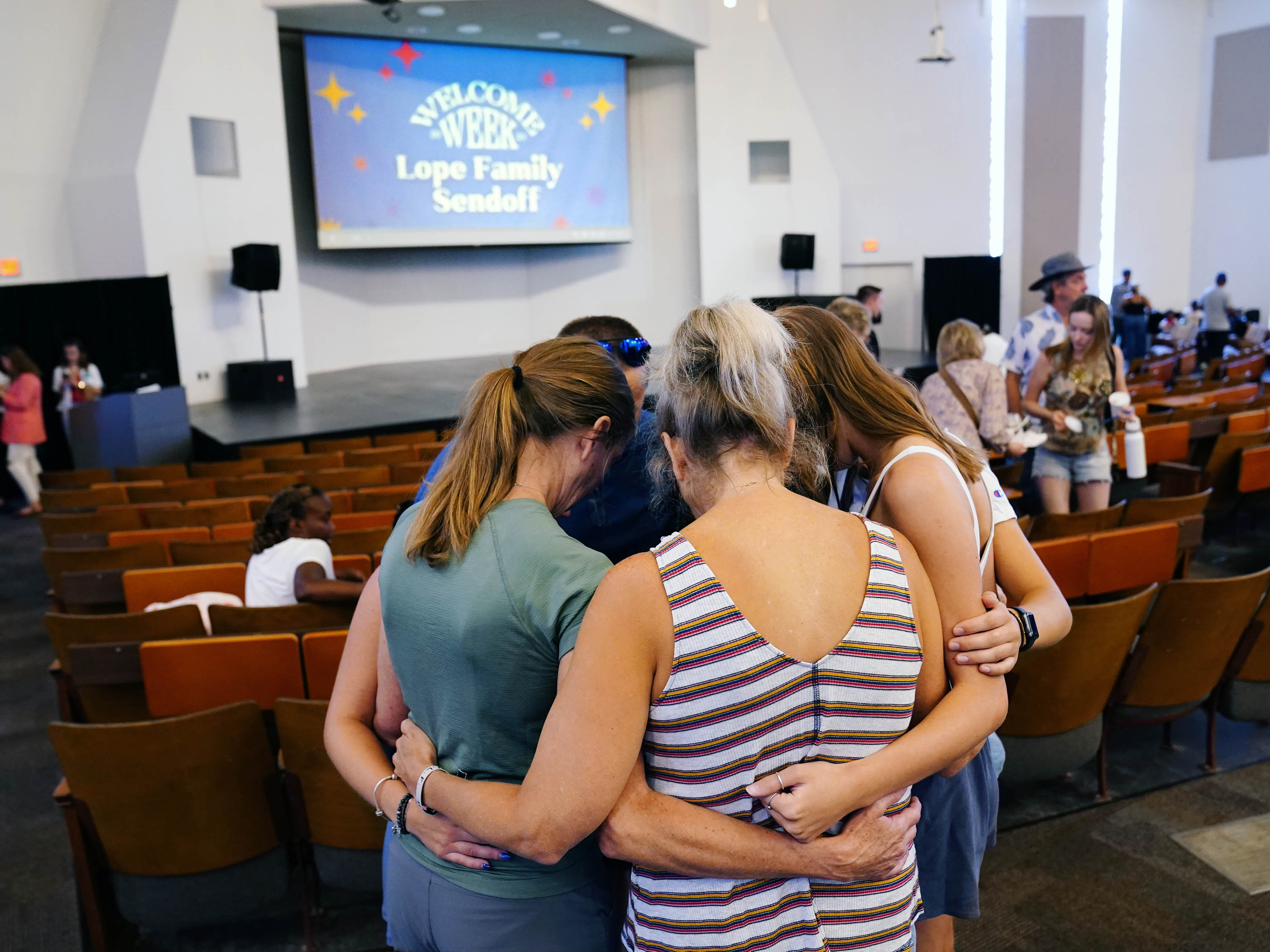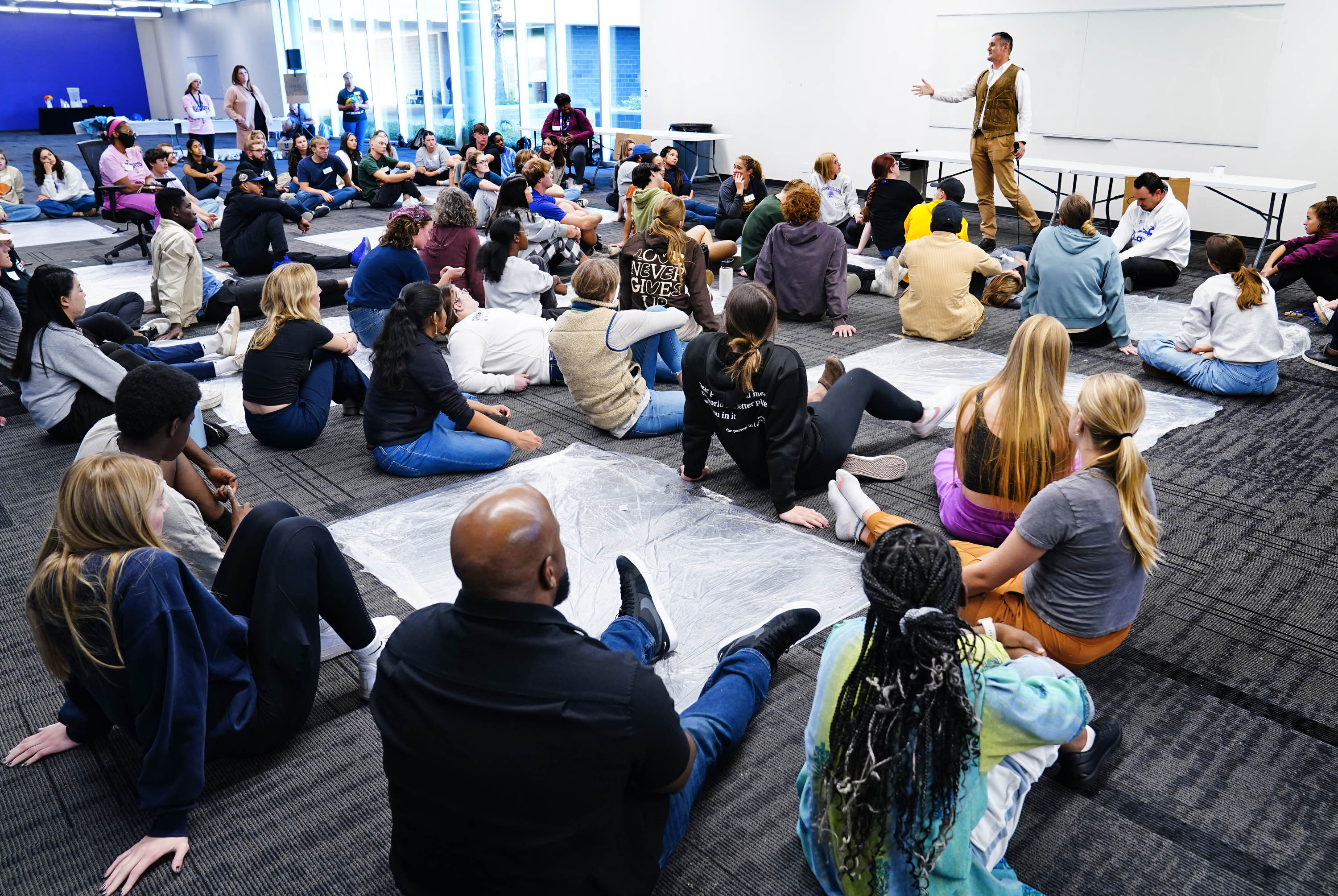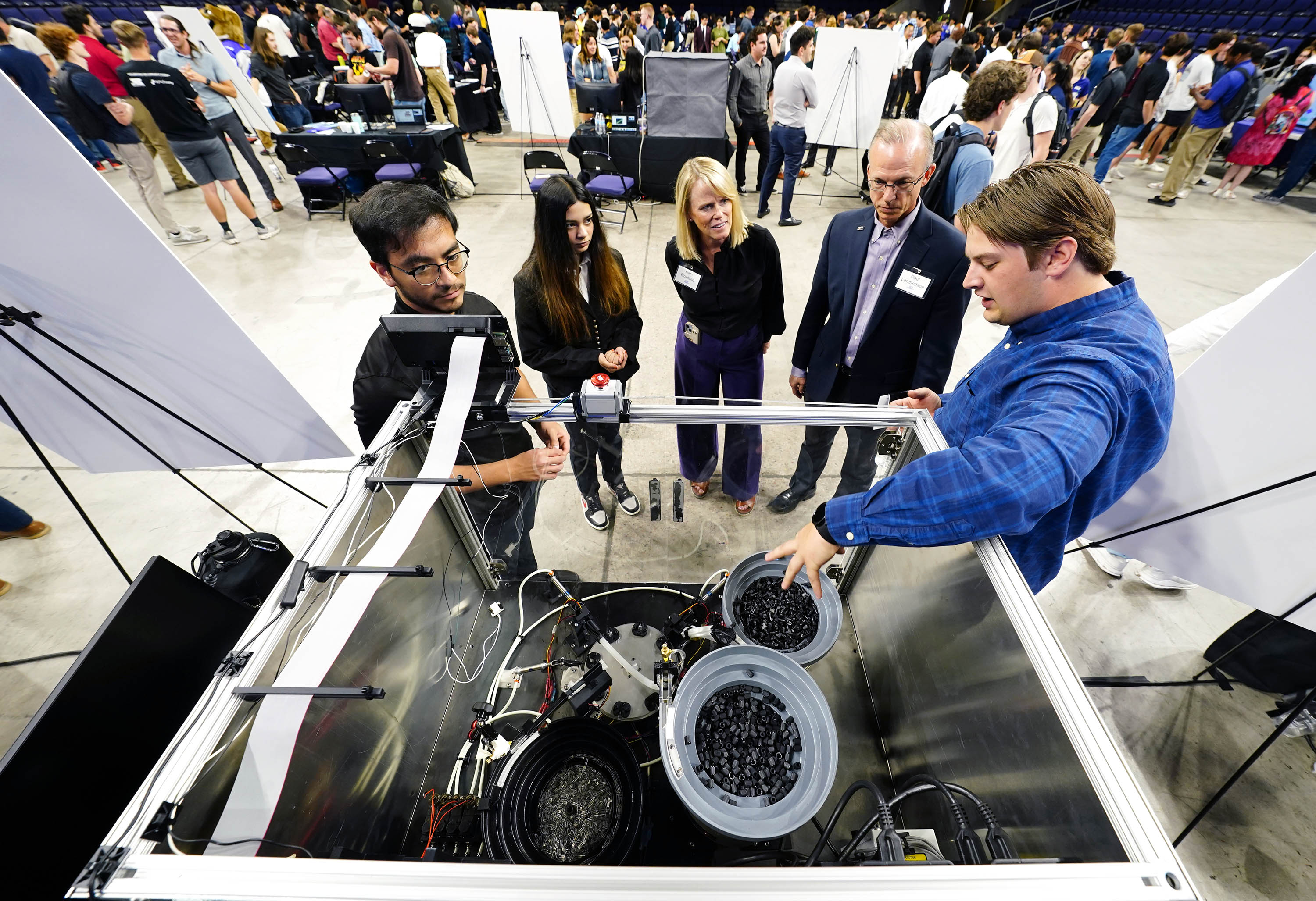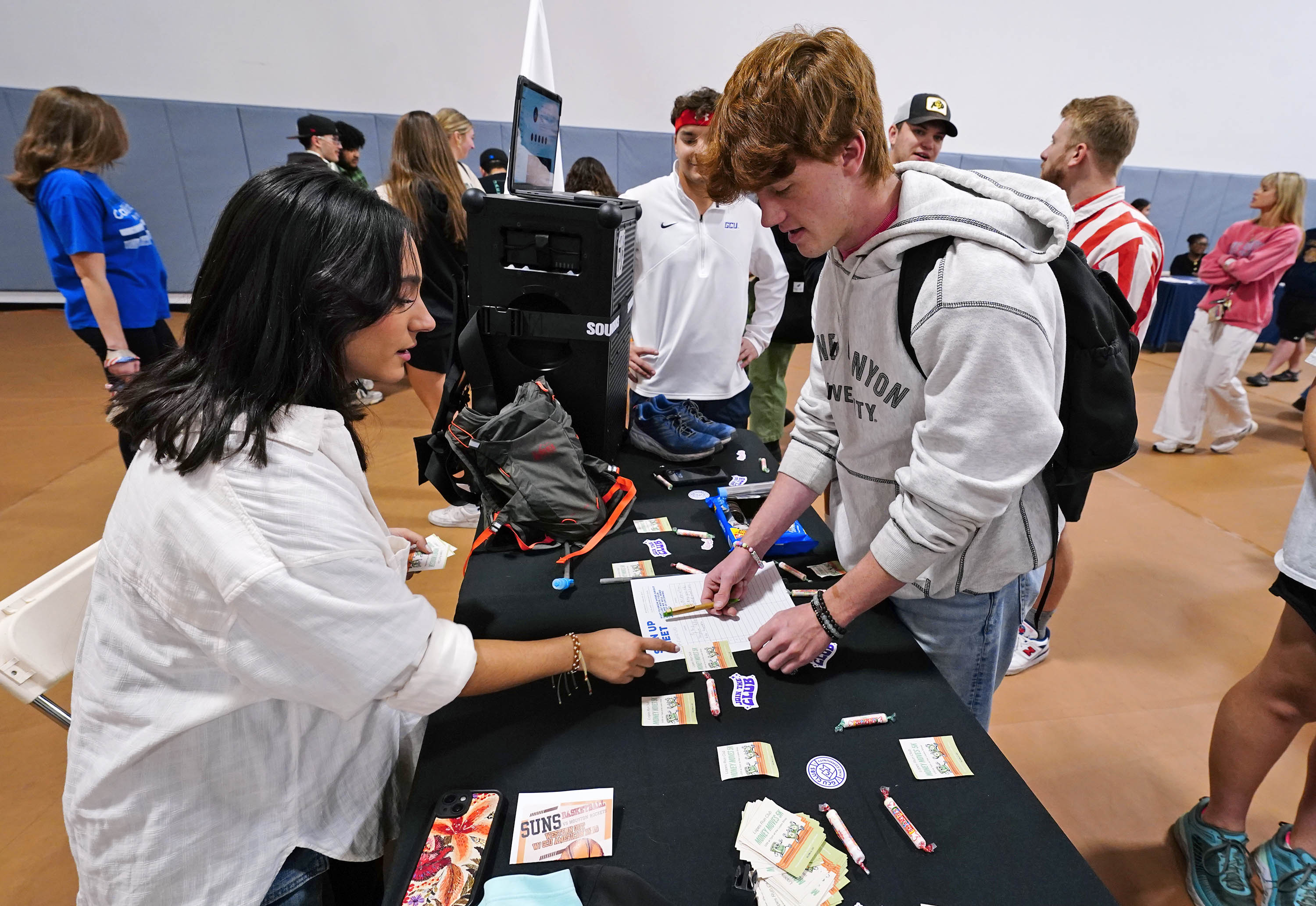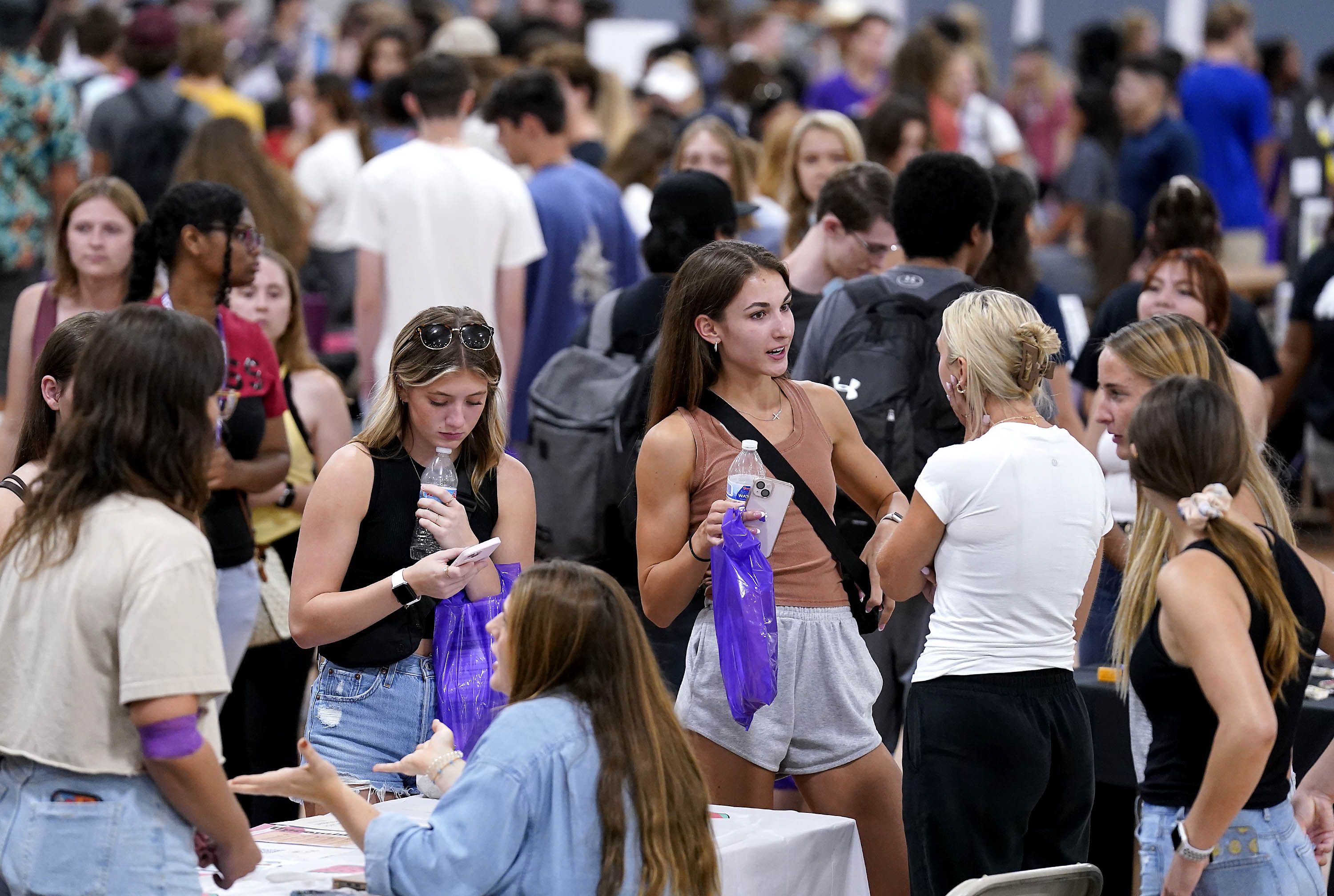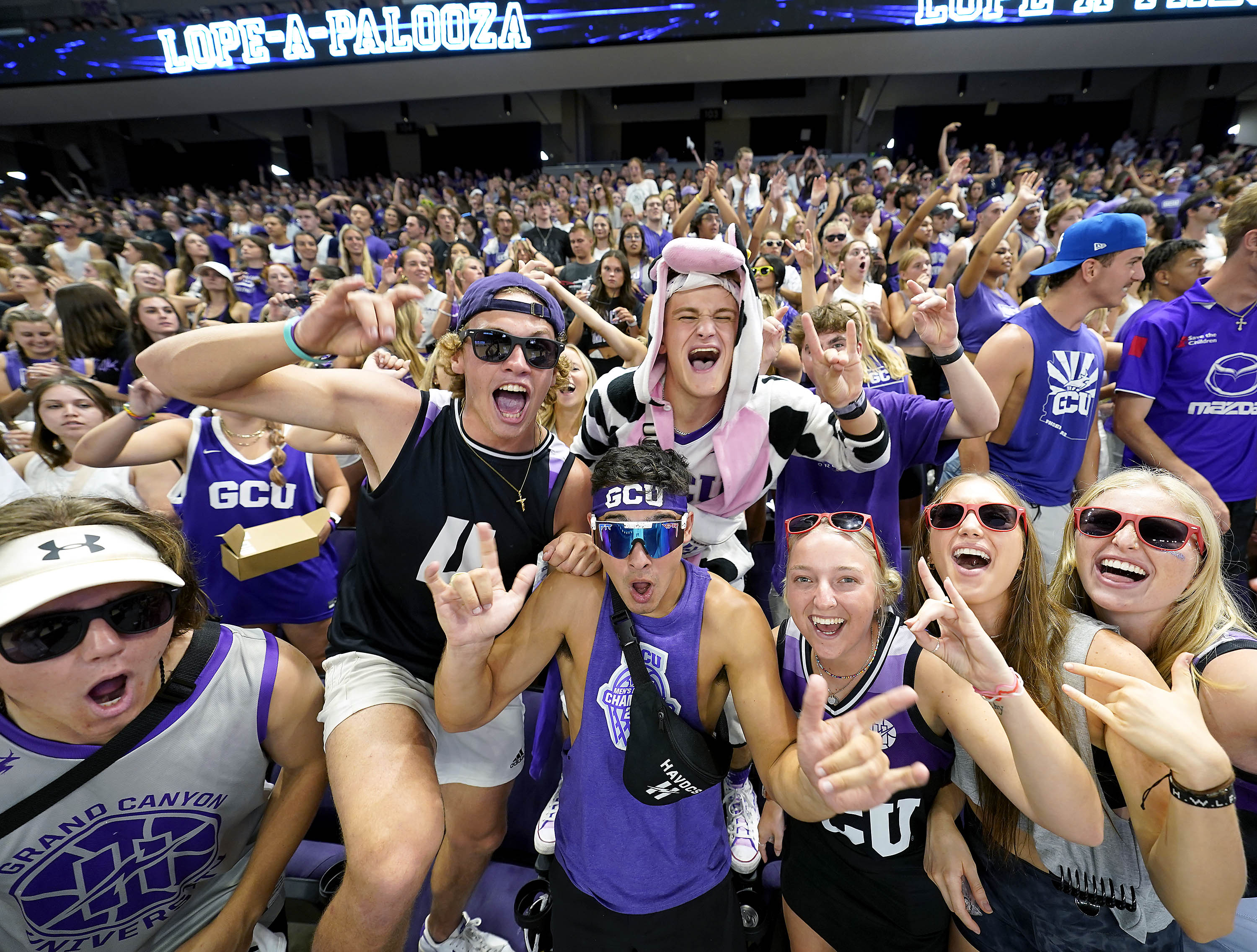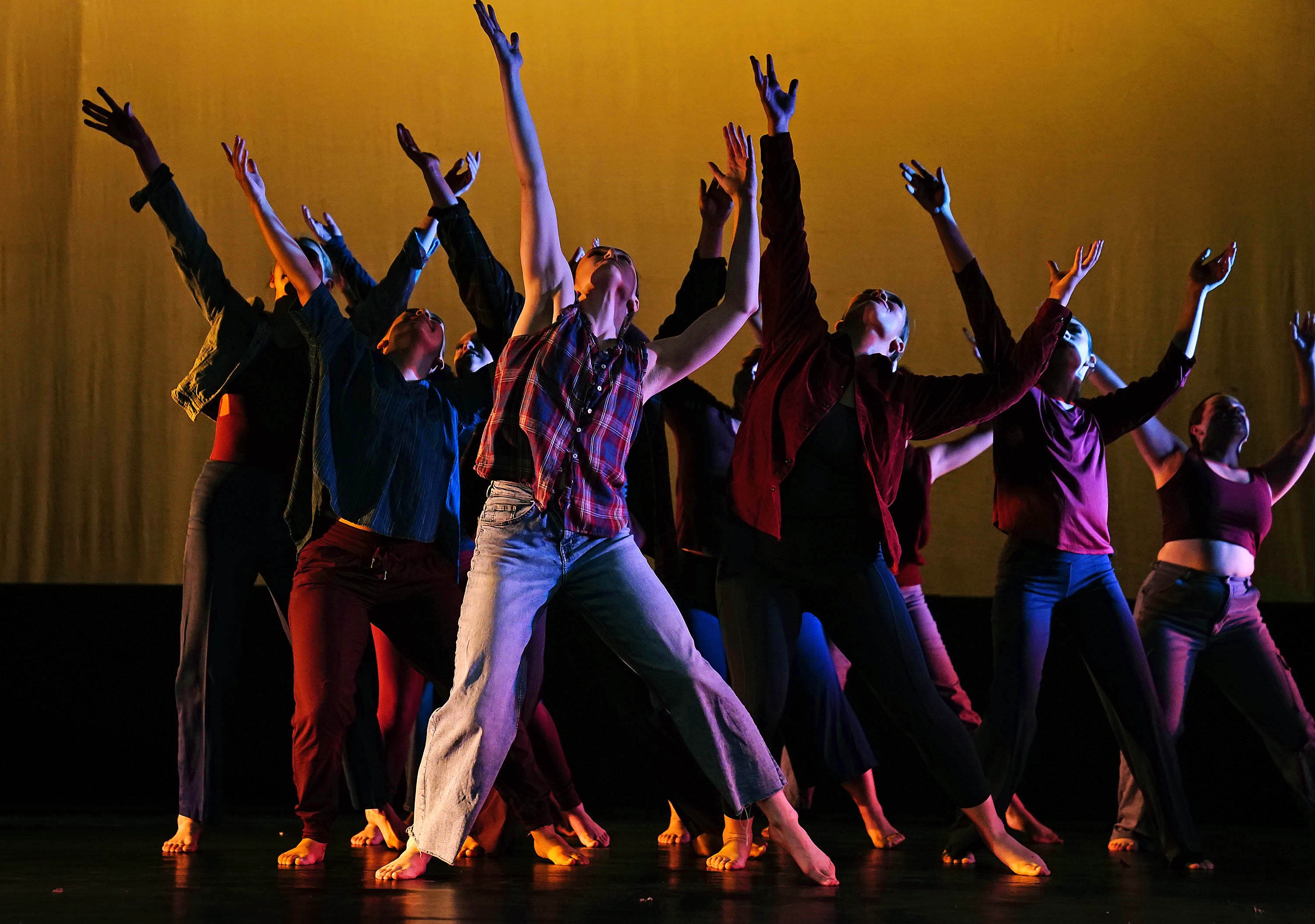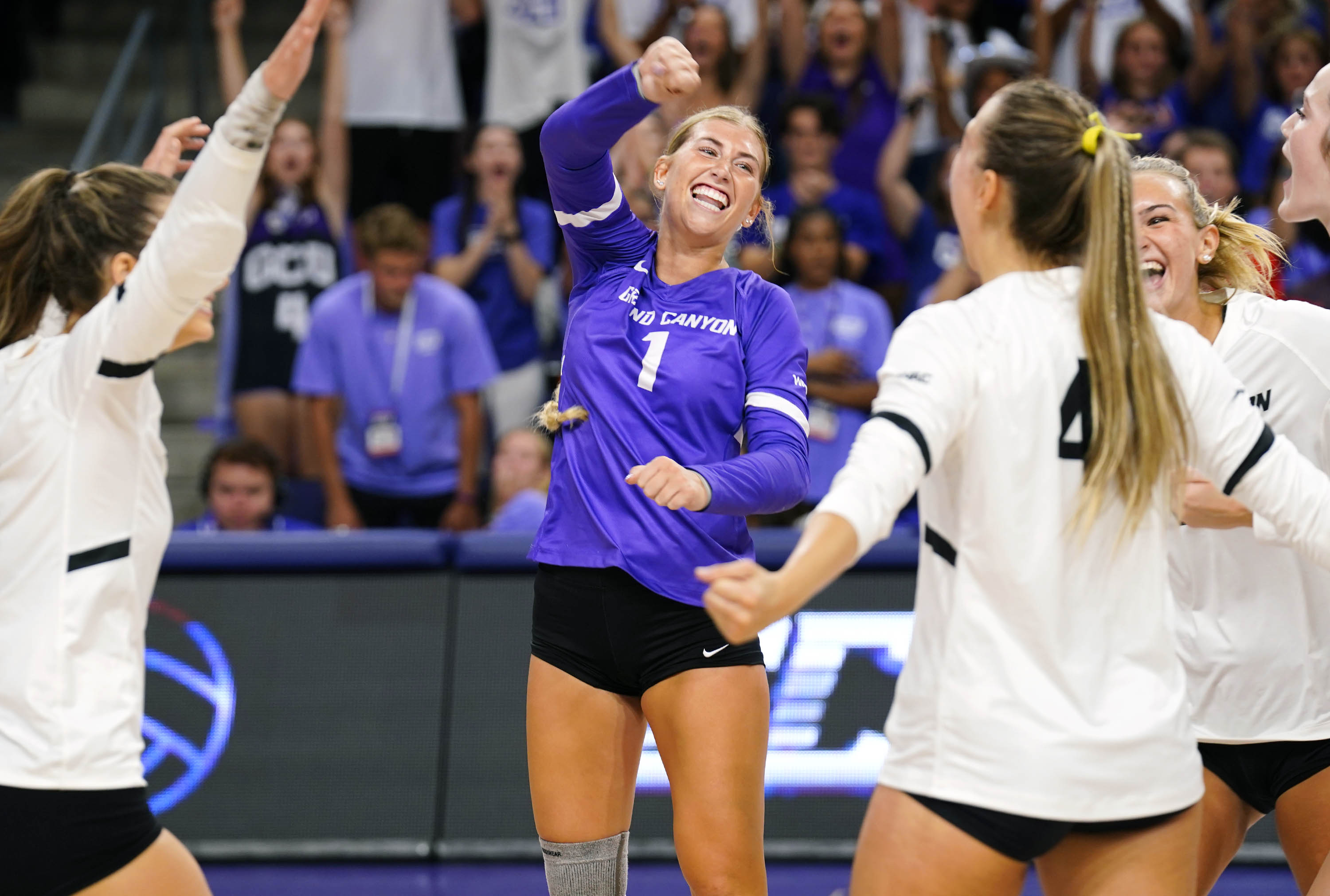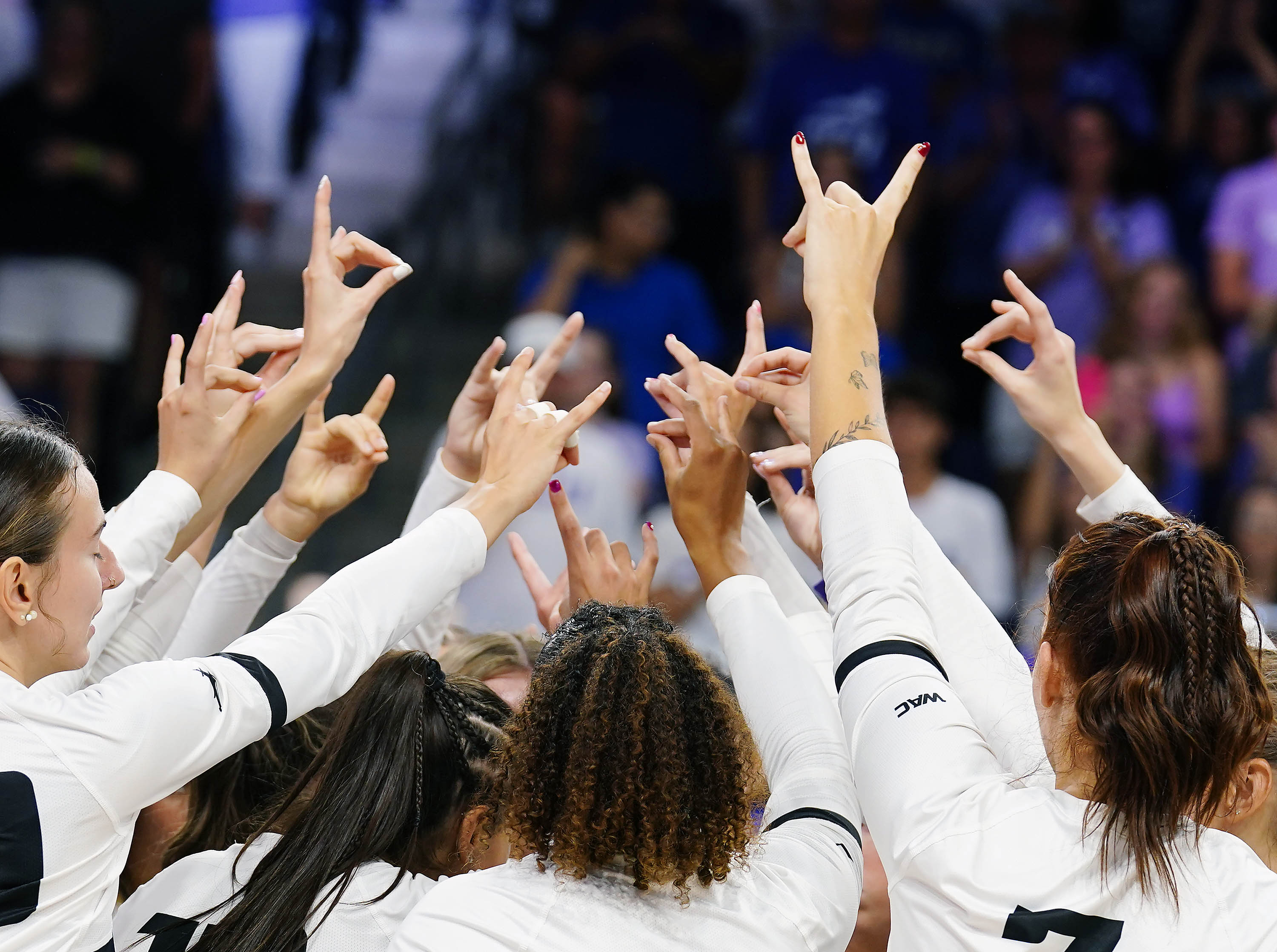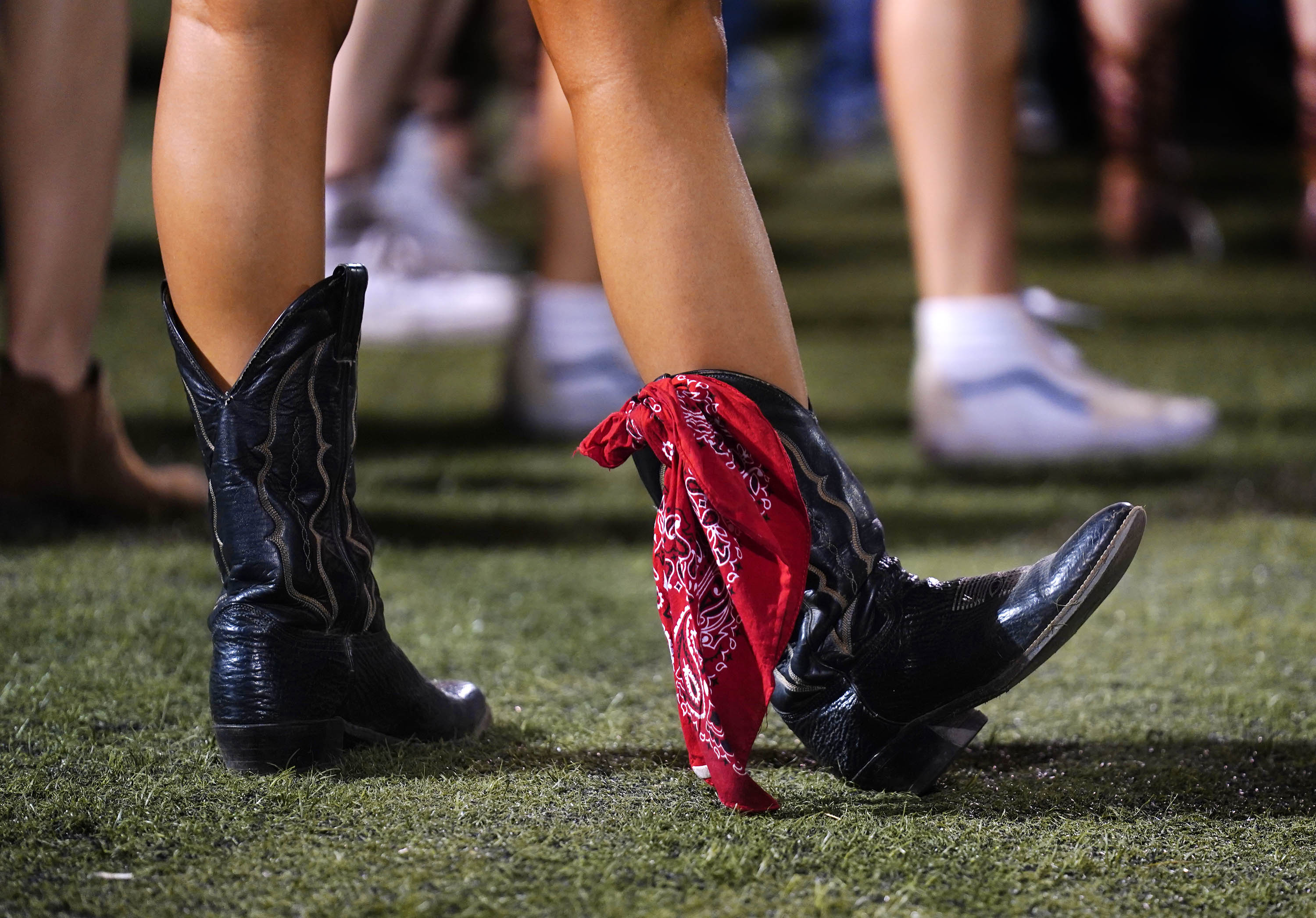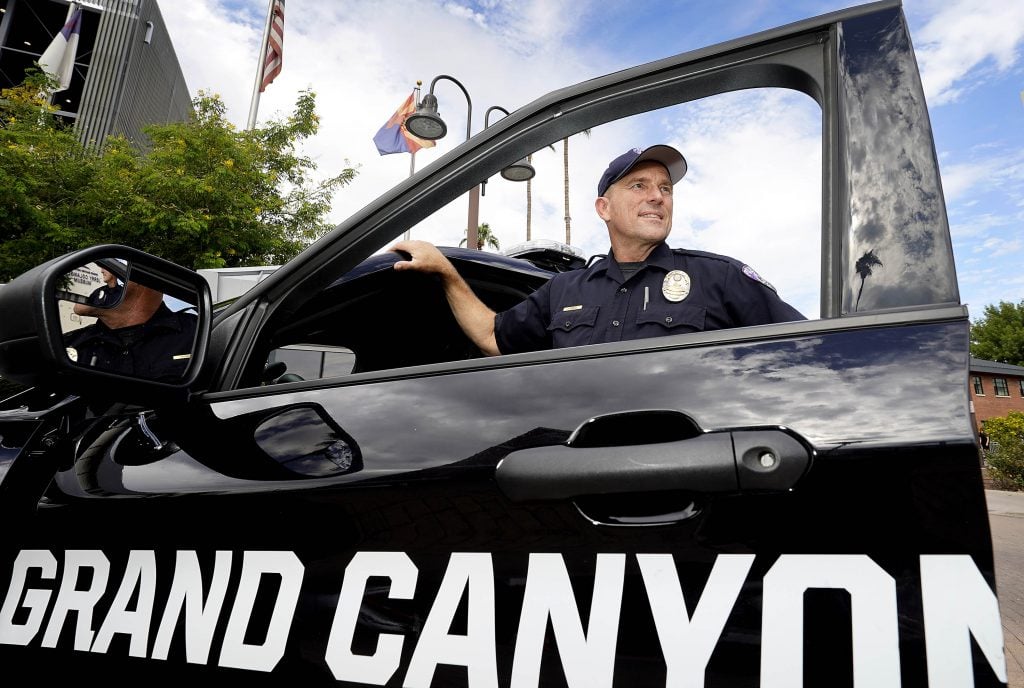
Photos by Ralph Freso
It was the last week of May, and the promise of summer called to students at Robb Elementary School in Uvalde, Texas, when an 18-year-old gunman walked in and stamped out that promise.
Nineteen students and two teachers would never walk out of the school again in what would become the third-deadliest school shooting in America.
Grand Canyon University Director of Public Safety Michael Caputo hopes the tragedy of what happened there, “God forbid,” never happens here.
It’s why the department took steps over the summer to be as prepared as possible for an active-shooter threat.
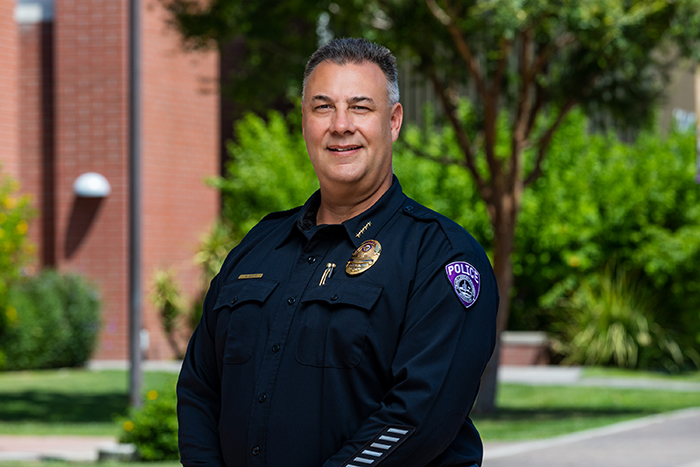
“The first day (of training) was before the shooting; the last day, after the shooting,” GCU police officer Jonathan Romberg said of the Advanced Law Enforcement Rapid Response Training (ALERRT) that the campus’ approximately 30 police officers received as the Uvalde tragedy unfolded.
The Texas State University-based ALERRT Center has trained almost 250,000 law enforcement, fire, emergency medical services and emergency management officials across the nation and was the organization called on to investigate the Uvalde school shooting.
“After Uvalde, this was the training that was mandated for all of the schools in Texas,” said Caputo. “So we’re already ahead of the curve.”
Caputo, a 28-year law enforcement veteran who spent 22 years in the FBI, was familiar with ALERRT even before stepping up to head GCU’s Public Safety Department in 2021.
The FBI named the program the national standard in active-shooter response training in 2013.
“You hope you never have to deal with something like this, but if something like this occurs, we try to be as prepared as we possibly can be,” said Caputo.
It’s why he brought the program here.
A team from the local FBI field office worked with GCU’s police officers over two days to train them in the most up-to-date tactics for responding to an active-shooter threat.
“We trained in classrooms and actually went through and did shooter scenarios,” Caputo said of the 16 hours of advanced training, mainly around the campus’ Echo building.
It included simulation drills using simulation firearms and such activities as setting up collection points for the injured — a much different scenario from the usual calm of the campus.
It keeps your mindset focused on the dangers out there, and if you're not cognizant of that, it's easy to get into a false perception of safety.
GCU police officer Jonathan Romberg
Romberg, who served with the Phoenix Police Department for more than two decades before joining GCU Police, said that for him, “The most valuable (part of the training) was the ‘force on force,’ when you’re using paintballs to simulate the stresses of an actual gunfight.”
The sobering reality of those simulations reminded him of why the department continually trains.
“It keeps your mindset focused on the dangers out there, and if you’re not cognizant of that, it’s easy to get into a false perception of safety,” Romberg said.
Added Chris Ormerod, Acting Special Agent in Charge of the FBI’s Phoenix field office, “As is painfully clear, this type of focused training is critically important, very much needed and highly sought after by police departments across the country. The officers of the GCU Police Department are now well trained to respond to the unthinkable, and should it ever occur on campus, officers have a greater chance of saving lives.”
Officers who completed the program received the ALERRT Center’s Level 1 Active Shooter Response certification, the latest in GCU’s arsenal in keeping the campus safe.
Six years ago, the University formed an independent police force to facilitate an armed response to threatening situations and to complement the existing civilian guards. Most of the University’s police officers have retired from another law enforcement agency and bring decades of experience to their second career at GCU.
“We’re the only private university in the state that has that. The University has made a great investment in that,” Caputo said, emphasizing that the priority GCU puts on safety is evident by the number of staff in his department.
More than 220 employees work in Public Safety, including those fully certified, armed police officers who have the same arrest and law-enforcement powers as any police officer in the state.
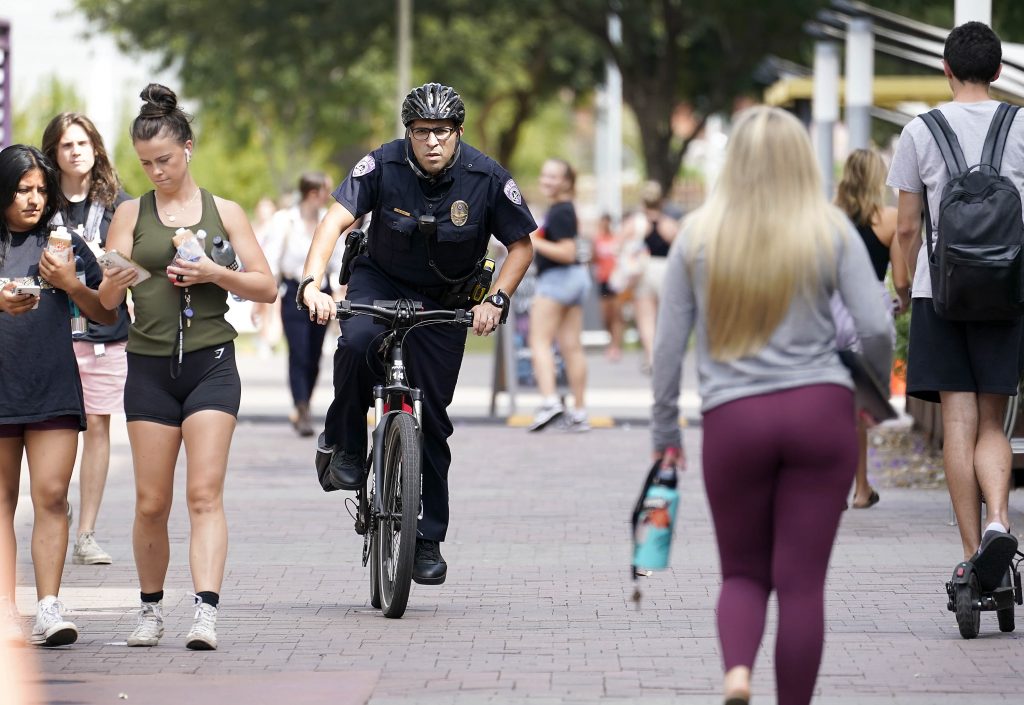
Add to that the civilian guards who patrol the University, secure the residence halls and helm the orderly evacuation of buildings, among other duties, though where they’re probably most noticeable is at the guard booths, controlling access to the campus.
“Some universities, the problem they have is anybody can just walk onto their campus. They (the guards) do not know who they are or what they’re carrying,” Caputo said. “At least we have the ability to control that somewhat.”
The department also operates a 24/7 dispatch center, which transmits communications to officers in the field.
Beyond those 200-plus employees, Caputo said his department takes a holistic approach to public safety, looking at it in three phases: what the department does to prevent and mitigate threats, how the department responds to threatening situations and what happens afterward.
On the front end, in addition to posting security guards at access points, the campus maintains physical fencing, a camera system and electronic key card access into buildings and specific residence floors.
There’s also the multidisciplinary threat-assessment team, which meets to talk about potential campus threats. The team includes assistant vice president-level representation, “so a very high level of representation,” Caputo said.
“We can actually go through and make an assessment,” he added, then use tools to diminish those potential threats, from making referrals to outside law enforcement, to getting help for a student who may be struggling with mental health.
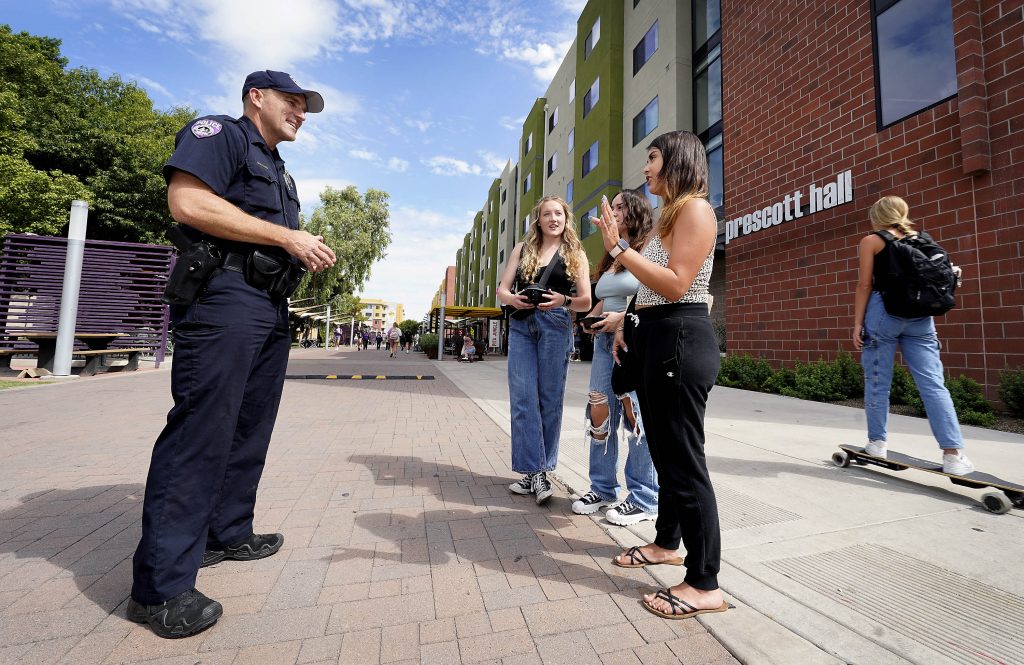
One thing the University does well in the realm of public safety is work closely with its law enforcement partners. Caputo, for one, meets with the Phoenix Police Department regularly to discuss any campus safety concerns.
“The coordination with our partners is HUGE. We have phenomenal relationships with the Phoenix Police Department and the Phoenix Fire Department,” Caputo said.
Not only does the fire department train on the GCU campus, but the University also has a codified relationship with the Phoenix Police Department, which includes extra patrols for the edges of campus and assistance whenever the University needs it.
And GCU’s agreement with the Phoenix Police, called the Neighborhood Safety Initiative, is part of the University’s Five-Point Plan to support the surrounding community.
“It’s all part of what we do to be proactive. We’re doing a lot of these things to try to identify these threats before they occur.”
But if an incident, such as an active shooter, were to happen, that’s when the campus police officers’ ALERRT training kicks in.
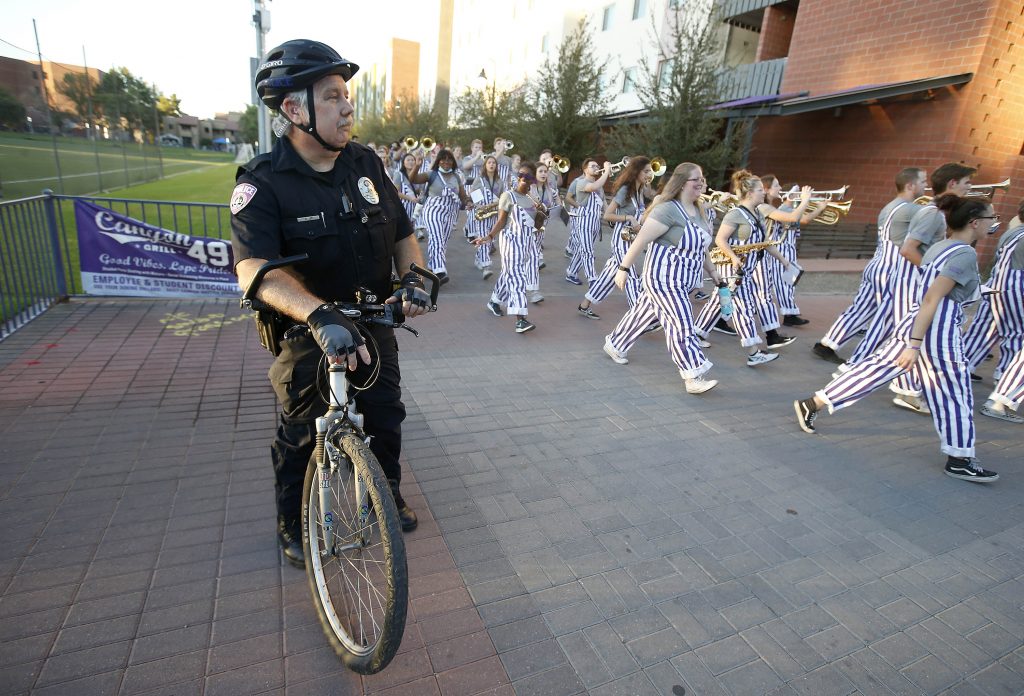
Part of this summer’s training involved immediately locating the threat, then being able to access the building or room where that threat may be. Law enforcement not having access to Robb Elementary School was one of the criticisms in the Uvalde shooting. It’s something Caputo doesn’t see happening at GCU.
“The reality is, we have all the tools we need to break into a room if we have to, though in this case, we don’t need to. We have keys and access cards to get into every room on this campus,” he said.
Public Safety also learned in its ALERRT training to continue its response after the threat is contained.
“Whether it’s relocating a classroom after it’s shut down, whether it’s reunification of parents — we have a lot of local students and we’re going to have local parents wanting to come to campus to find out what’s going on with their children. We have to think about those kinds of things.”
And Caputo and his team think about all those aspects of public safety, not just as employees, but as parents.
“It’s even more personal to me because my daughter goes to GCU. She lives on campus, so I’ve got skin in the game, and so do the other officers,” Romberg said of his daughter, Shannen Greenlee. Caputo also has a daughter, Kaitlynn, who is an alumna and a son, Koby, who is a GCU cybersecurity senior.
Keeping them safe, keeping all GCU’s community safe, it’s the priority: “It’s very important to me,” Caputo said.
GCU senior writer Lana Sweeten-Shults can be reached at lana.sweeten-shults@gcu.edu or at 602-639-7901.
****
Related content:
GCU News: Public Safety director learns from FBI conference
GCU News: Public Safety leaders retire after serving with smiles
GCU News: Bicycle program gears up thanks to police officers

